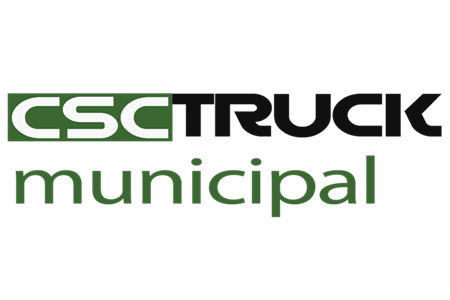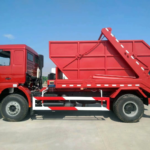Urban waste management is a critical aspect of maintaining cleanliness and hygiene in cities and towns. One of the key players in this process is the skip loader garbage truck, a specialized vehicle designed to efficiently collect and transport large quantities of waste. To ensure the seamless functioning of these trucks and maintain a high level of service, proper maintenance practices are paramount. In this article, we will delve into the world of skip loader garbage truck maintenance, providing valuable tips for ensuring efficient trash handling and prolonging the lifespan of these indispensable vehicles.
The Importance of Skip Loader Garbage Trucks
Skip loader garbage trucks, also known as roll-off trucks, are specially designed to handle bulky waste materials and debris, making them an essential part of waste collection systems. Their distinctive feature is a hydraulic hoist system that allows them to lift and load large containers, known as dumpsters or skips, onto their rear bed. This efficiency in handling heavy loads makes them ideal for construction sites, industrial waste disposal, and even large-scale residential waste collection.
Regular Inspection: The Foundation of Maintenance
Just like any other heavy machinery, skip-loader garbage trucks require consistent inspection and maintenance to ensure optimal performance. Regularly scheduled inspections are the foundation of an effective maintenance routine. These inspections should cover various aspects of the truck, including:
1. Hydraulic System:
The hydraulic system is the heart of a skip-loader garbage truck. Regularly inspect hydraulic hoses, cylinders, and fittings for signs of leaks, damage, or wear. Check the hydraulic fluid levels and ensure they meet the manufacturer’s specifications.
2. Mechanical Components:
Inspect mechanical components such as the lifting arms, hinges, and locking mechanisms. Lubricate moving parts as needed and replace any worn-out components promptly.
3. Electrical System:
Ensure that all lights, signals, and controls are functioning properly. Electrical issues can lead to operational disruptions and safety hazards.
4. Tires and Suspension:
Check tire pressure, tread wear, and suspension components. Properly maintained tires and suspension systems contribute to safe and efficient operation.
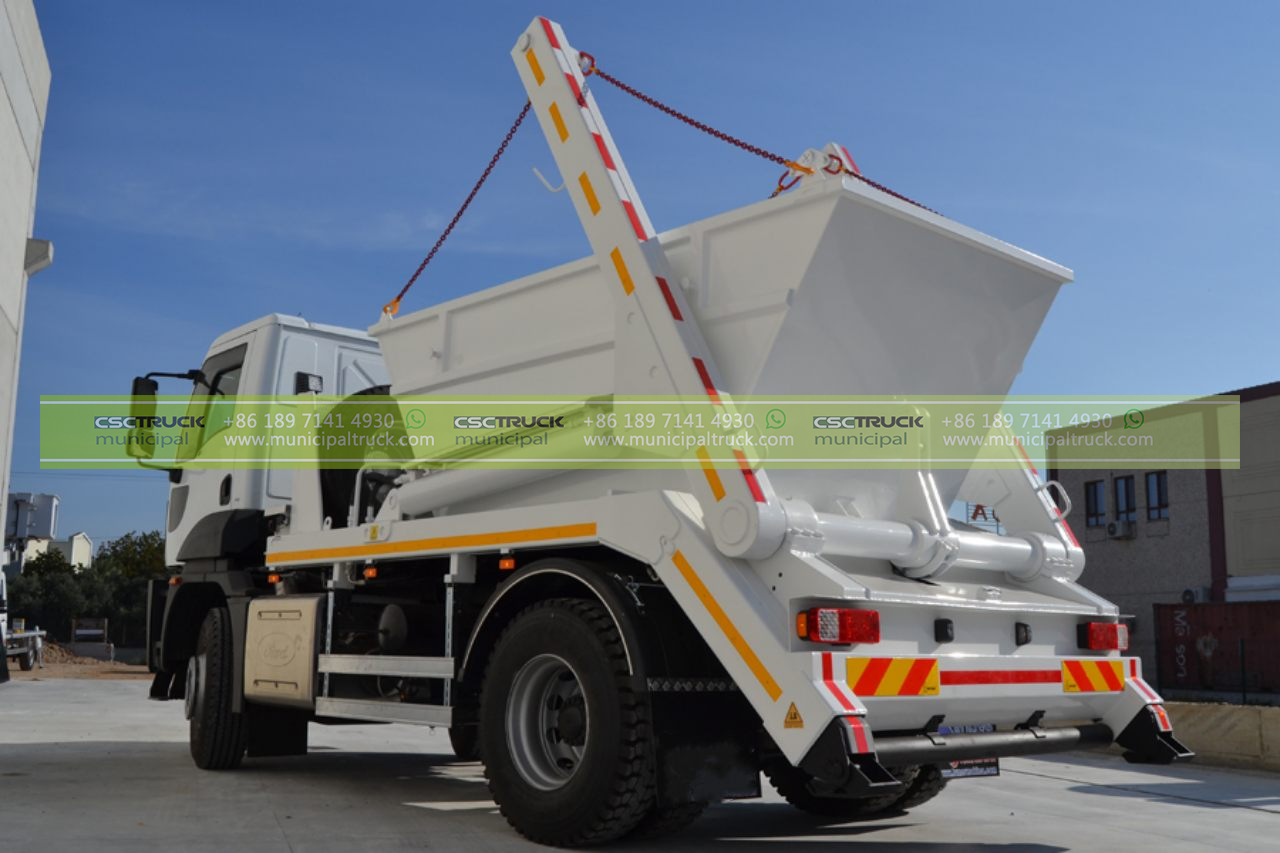
Cleaning and Rust Prevention
Skip loader garbage trucks are exposed to a wide range of waste materials, many of which can be corrosive. Regularly clean the truck’s body and components to remove accumulated debris and prevent rust formation. Pay particular attention to the areas around hinges, locks, and hydraulic components, as these are more susceptible to corrosion.
Applying a protective coating or rust inhibitor can further safeguard the truck’s metal surfaces. This simple step can significantly extend the vehicle’s lifespan, reducing the need for costly repairs or premature replacements.
Operator Training and Best Practices
Proper operation of skip loader garbage trucks not only enhances their efficiency but also contributes to their longevity. Providing comprehensive training to operators is essential. They should be well-versed in the truck’s features, controls, and safety protocols. Emphasize the importance of gentle and controlled loading and unloading to minimize wear and tear on the hydraulic system and mechanical components.
Encourage operators to adhere to recommended weight limits for containers to avoid overloading the truck, which can lead to excessive strain on the hydraulic system and chassis.
Fluid Maintenance and Replacement
The hydraulic system relies on specialized fluid to function effectively. Regularly monitor the hydraulic fluid levels and quality. Contaminated or deteriorated hydraulic fluid can lead to decreased performance and potential damage to the system. Follow the manufacturer’s guidelines for fluid replacement intervals and use only the recommended type of hydraulic fluid.
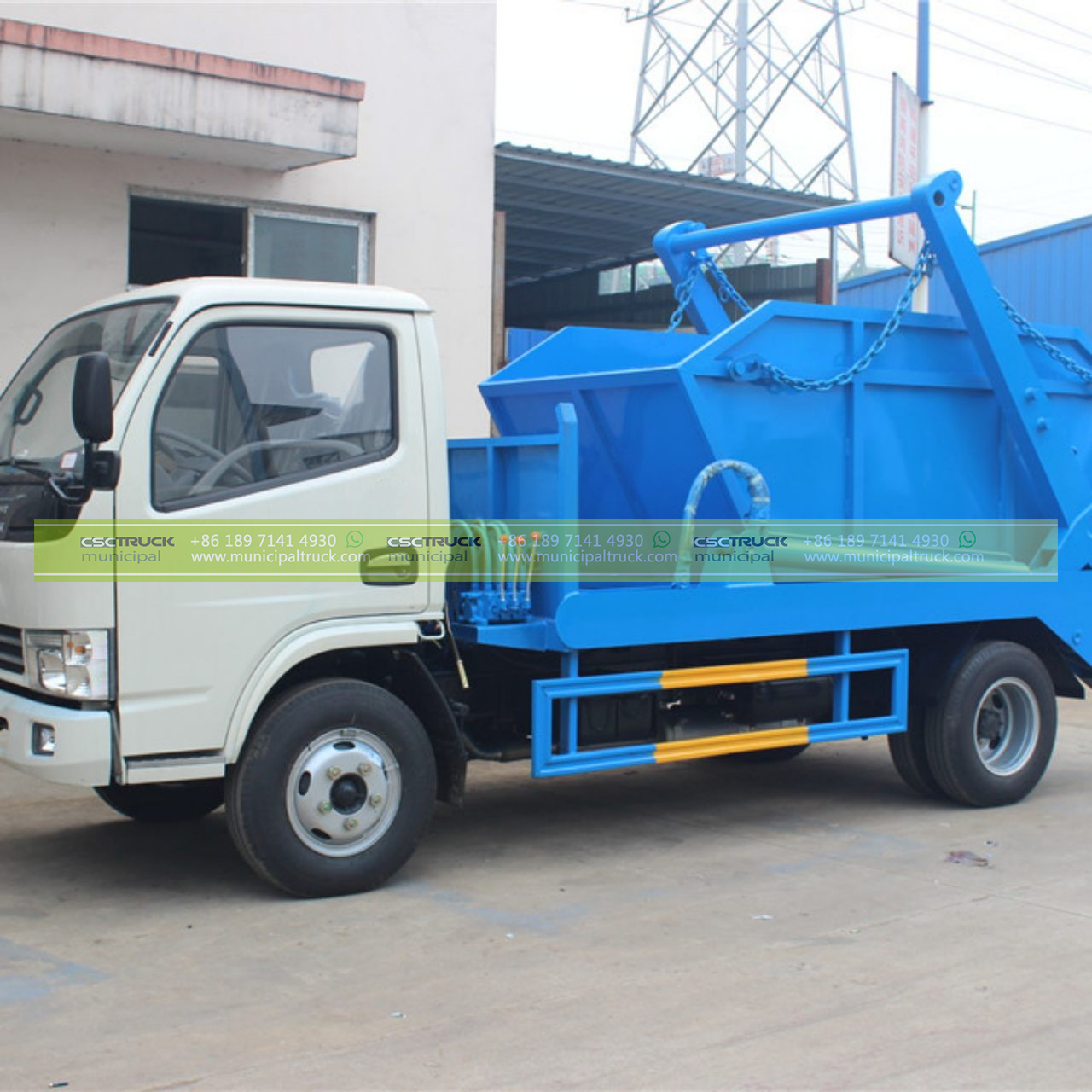
Scheduled Servicing by Professionals
While routine inspections and basic maintenance can be carried out by in-house personnel, it’s crucial to schedule periodic servicing by professionals. Expert technicians have the expertise and tools to perform more in-depth diagnostics and repairs. They can identify potential issues before they escalate and ensure that all components are functioning optimally.
Record-Keeping and Documentation
Maintaining a comprehensive record of all maintenance activities is essential. This documentation serves as a historical reference and helps track the truck’s maintenance history. It can also be valuable for warranty claims and resale purposes. Include details such as inspection dates, repairs performed, parts replaced, and fluid changes.
Embracing Technology for Maintenance
In today’s digital age, technology has revolutionized the way maintenance is approached, and skip-loader garbage trucks are no exception. Fleet management software, sensors, and data analytics can all be harnessed to enhance maintenance practices. Implementing a robust fleet management system allows for real-time monitoring of various parameters, such as engine health, hydraulic system performance, and fuel consumption. This proactive approach enables maintenance teams to anticipate issues and schedule repairs before they escalate, minimizing downtime and maximizing operational efficiency.
Additionally, some modern skip loader trucks come equipped with diagnostic sensors that provide real-time data on the condition of critical components. These sensors can detect anomalies in hydraulic pressure, temperature, and other parameters, allowing maintenance teams to identify potential issues early on and take corrective action.
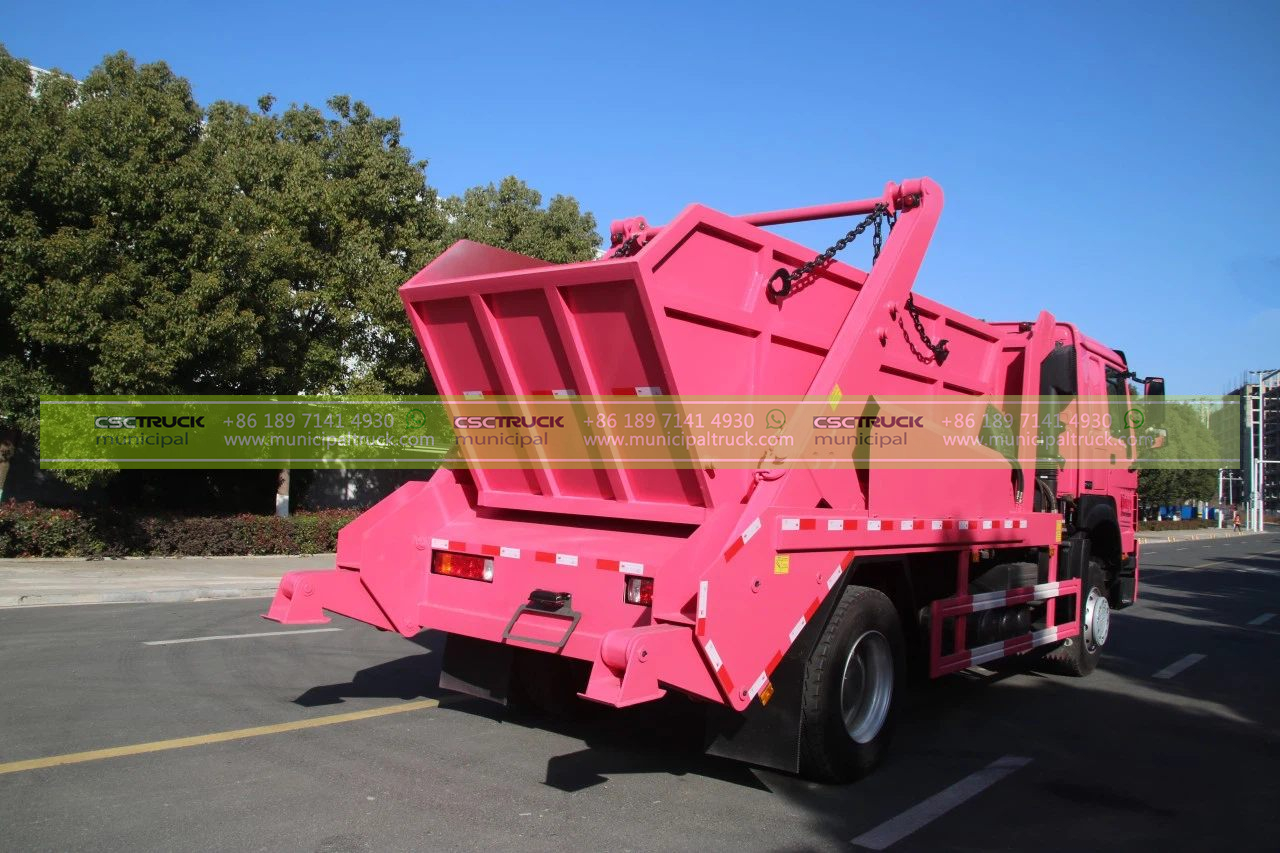
Addressing Environmental Concerns
In the pursuit of efficient maintenance practices, it’s essential to consider the environmental impact as well. Waste management operations already deal with ecological challenges, and maintenance activities should not exacerbate these issues. Proper disposal of waste materials generated during maintenance, such as used filters, lubricants, and replaced components, is crucial to preventing environmental contamination.
Furthermore, exploring eco-friendly lubricants and hydraulic fluids can contribute to sustainability efforts. These alternatives reduce the environmental footprint associated with the disposal of conventional fluids, making maintenance practices more environmentally responsible.
Budgeting for Maintenance
Effective skip loader garbage truck maintenance requires budget allocation and financial planning. Establishing a dedicated maintenance budget helps ensure that the necessary resources are available for inspections, repairs, and replacements. By investing in regular maintenance, waste management agencies and companies can avoid larger, unexpected expenses down the road.
When budgeting, consider factors such as the frequency of maintenance activities, the cost of replacement parts, and the expenses associated with outsourcing specialized servicing. A well-planned budget allows for more accurate financial projections and prevents the maintenance of skip-loader garbage trucks from becoming a financial burden.
Collaboration and Knowledge Sharing
Maintenance professionals and operators should be encouraged to share their experiences, insights, and challenges related to skip-loader garbage truck maintenance. Establishing a culture of collaboration within maintenance teams fosters knowledge-sharing and problem-solving. Regular meetings or workshops can serve as platforms for discussing best practices, lessons learned, and innovative solutions.
Incorporating feedback from operators who interact with the trucks daily can lead to valuable insights into potential improvements or adjustments needed in maintenance routines. This collaborative approach can lead to more efficient maintenance strategies and contribute to the overall success of waste management operations.
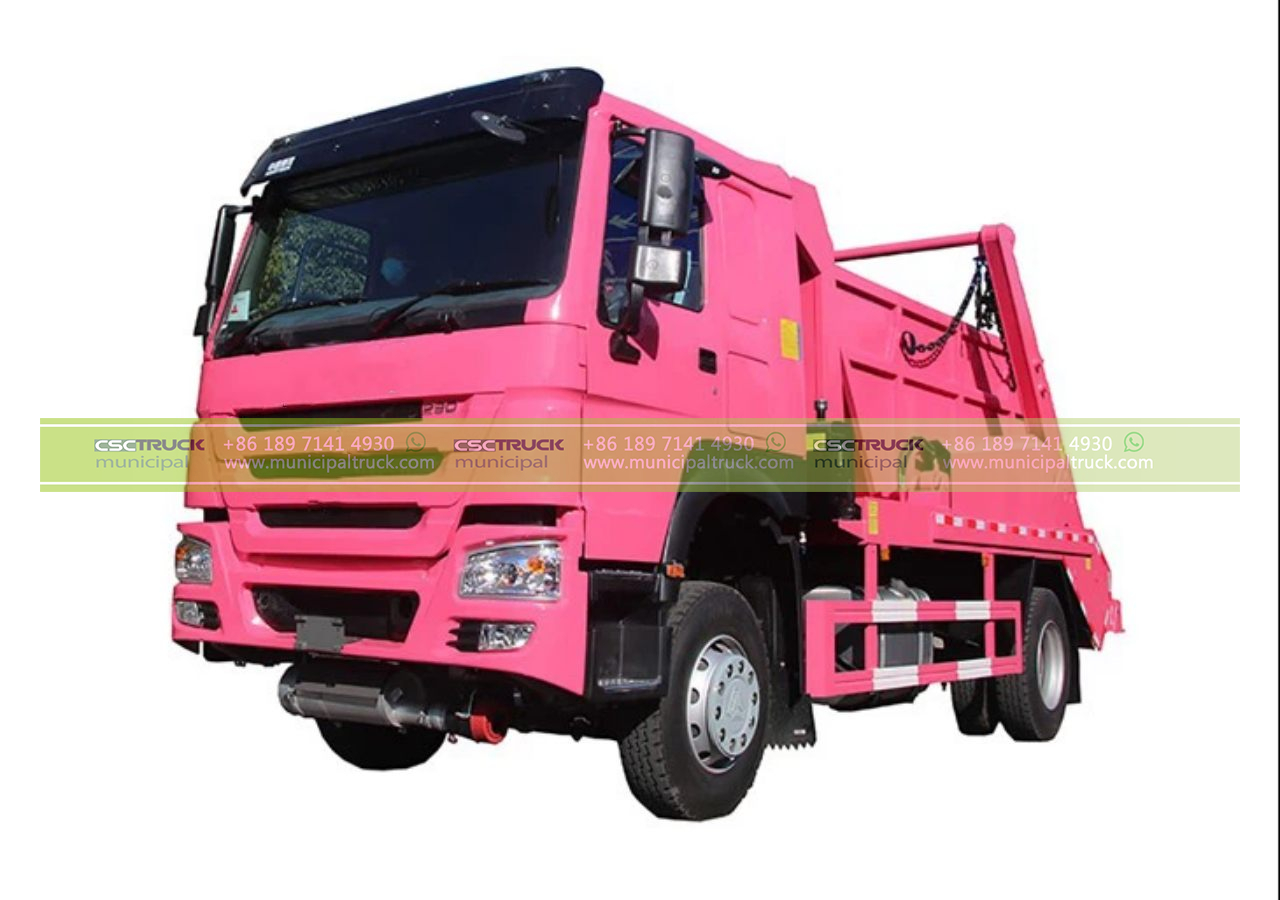
Future Trends in Skip Loader Maintenance
As technology continues to advance, skip loader garbage truck maintenance is poised to benefit from innovative trends. Predictive maintenance, enabled by artificial intelligence and machine learning, can revolutionize how maintenance is approached. By analyzing historical data and real-time inputs, these systems can predict when components are likely to fail, allowing for proactive replacement before a breakdown occurs.
Moreover, advancements in material science may lead to the development of more durable and corrosion-resistant materials for skip loader trucks. This can extend the lifespan of the vehicles and reduce the frequency of maintenance.
In Conclusion
Skip loader garbage trucks are essential workhorses in waste management systems, handling the challenging task of transporting bulk waste efficiently. Proper maintenance is the backbone of their reliable performance and longevity. From embracing technology to fostering collaboration and adhering to environmentally responsible practices, the tips outlined in this article provide a comprehensive guide to ensuring efficient trash handling through effective skip-loader garbage truck maintenance.
By incorporating these practices into their operations, waste management agencies and companies can minimize downtime, reduce operational costs, and contribute to cleaner and healthier urban environments. As we move forward, maintenance practices must continue to evolve alongside technological advancements, ensuring that skip-loader garbage trucks remain an integral part of waste management strategies for years to come.
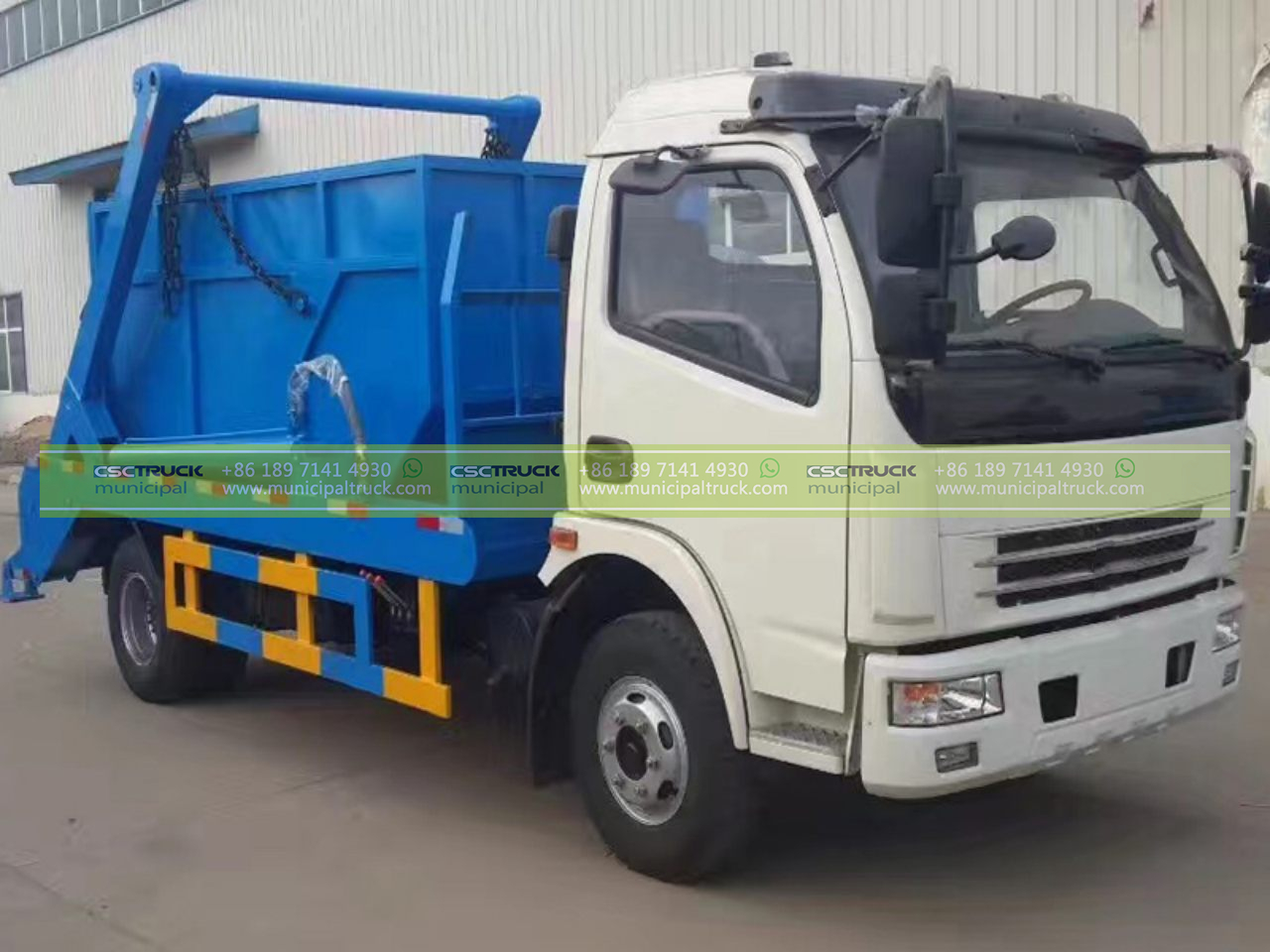
Contact us for this municipal truck or similar trucks: [email protected] Call us or What's APP us: +86 189 4292 3930
